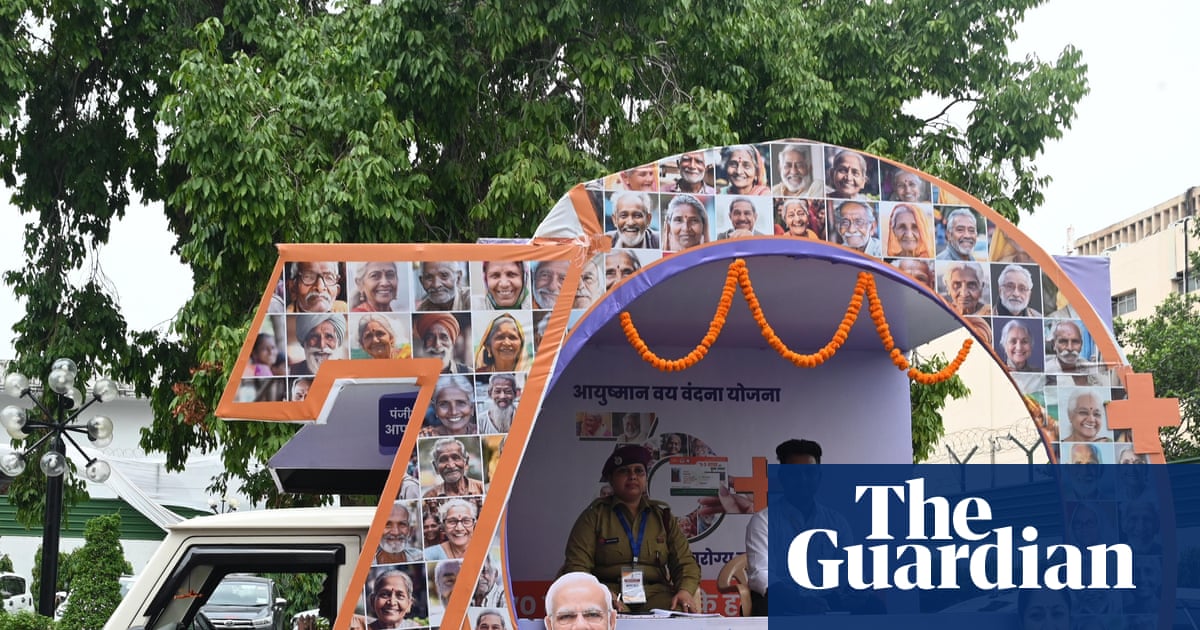
"When the world's biggest healthcare scheme works, it allows tens of thousands of Indians petrified of the catastrophic cost of hospital treatment to breathe easy Indians such as Mahesh Kumar Sharma, a 60-year-old farmer from Madhya Pradesh who is a patient at the National Heart Institute in the capital, Delhi. A top cardiologist, Dr OP Yadava, has carried out open-heart surgery to replace his mitral valve."
"Under the Ayushman Bharat medical insurance scheme, launched in 2018, poor patients are entitled to cover worth 500,000 rupees a year for each family. Most importantly, the treatment is available not only at the crowded and frenetic government facilities but also at private hospitals across India that offer a better standard of care. So far, 822m Ayushman Bharat health account (ABHA) numbers have been issued."
"Once Sharma has been discharged from hospital, the institute will send the bill to the federal government for reimbursement. But this is where the scheme is foundering. Nationwide, the unpaid claims for medical care stand at more than 1tn rupees (8.5bn). In the state of Kerala alone, there are 4bn rupees in pending claims. The Indian Medical Association (IMA) has written to the government of its deep concern over outstanding bills."
Ayushman Bharat provides eligible poor families up to 500,000 rupees a year in hospital coverage and allows treatment in both public and private hospitals. The scheme has issued 822 million ABHA health account numbers and has enabled complex, free procedures such as open-heart surgery for low-income patients. Many beneficiaries avoided catastrophic debt or selling assets to pay for care. However, unpaid provider claims exceed 1 trillion rupees nationwide, with notable backlogs in states such as Kerala. Medical bodies have raised alarm over outstanding bills, putting the scheme's ability to deliver free, quality care at risk.
Read at www.theguardian.com
Unable to calculate read time
Collection
[
|
...
]